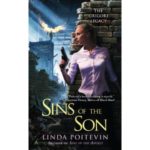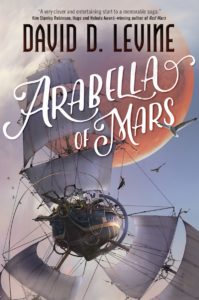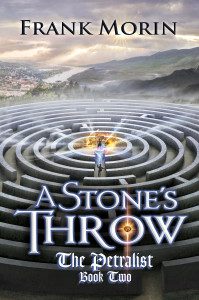 When I’m looking for urban fantasy in the bookstores or online, I also check under paranormal romance. Some of my favourite urban fantasy authors—including Linda Poitevin (The Grigori Legacy) and Carrie Vaughn (The Kitty Norville series)—often end up filed there.
When I’m looking for urban fantasy in the bookstores or online, I also check under paranormal romance. Some of my favourite urban fantasy authors—including Linda Poitevin (The Grigori Legacy) and Carrie Vaughn (The Kitty Norville series)—often end up filed there.
What is paranormal romance? It’s a romance—a story that focuses on a romantic relationship developing between two characters—which also features paranormal elements, such as shapeshifters, magic-users, ghosts, vampires, psychic powers, cryptid monsters and the like.
What is urban fantasy? It’s a fantasy story—a story containing magical, mythical and/or supernatural elements—set in a modern, contemporary world. While these stories usually take place in a city, the opposite of “urban fantasy” isn’t a story with a modern rural setting; the opposite is the entirely fictitious worlds of most high fantasies. In short, urban fantasy is a fantasy story set in a world that is very much like our “real world.”
From these definitions, it’s easy to see where a crossover can occur. If your paranormal romance also takes place in a modern setting, rather than in a wholly imaginary landscape or a historical setting, then your paranormal romance is also an urban fantasy. And if your urban fantasy has a strong romantic subplot that rivals the main plot, or if the romance elements are critical to the main plot, then it may be very close to becoming a paranormal romance.
So what’s the difference? The romance genre has a number of conventions and expectations. The fantasy genre has entirely different conventions (such as “we want to see things we don’t see in “the real world,” often “we want there to be magic,” that sort of thing.) Its conventions with regard to character relationships are much looser.
Romance readers usually expect a happy ending. (And those romances that don’t guarantee a happy ending, like Dreamspinner Press’s “Bittersweet Dreams,” are often branded so readers know what they’re in for before they start to read). Readers want the hero and heroine to get together. They want sexual tension to blossom into an actual relationship, and they want that relationship to work out, at least until the end of the story (“Happy For Now”) if not forever (“Happily Ever After.”) They want the romance to be foregrounded. While plenty of paranormal romances incorporate action, horror, mystery, and suspense elements, the developing relationship is always at the heart of the plot.
Urban fantasy, meanwhile, isn’t obligated to include romance in any way. Some writers do: romantic relationships developing between characters can make compelling subplots. Unlike in romance-the-genre, the romance is usually not the main plot. But sometimes these relationships don’t result in happy endings. The sexual tension isn’t acted upon. Or the characters break up. Or one of them dies—or is revealed to be a villain. These are perfectly legitimate plot points for fantasies, but they are likely to disappoint romance readers who expected a certain kind of story when they picked the book up.
Needless to say, things can get complicated when your publisher wants to play up the romance elements of your urban fantasy book, particularly if you don’t consider yourself a romance writer. Or when bookstores keep filing your urban fantasy book under “paranormal romance” when you haven’t written a romance-centered plot with a happy ending.
Why don’t I find Harlequin Nocturnes in the fantasy section very often? Possibly because of the branding. Harlequin is a well-known romance name, so it’s natural that people would file Harlequin’s paranormal romance line with other romance novels.
Branding may be the best way to identify your urban fantasy as primarily fantasy rather than primarily romance. If you’re traditionally publishing, the final choice will be your publisher’s, but if you’re self-publishing or your publisher allows your input, consider your cover carefully. A shirtless man and a young woman staring into one another’s eyes screams “romance.” Make your cover look like an urban fantasy cover, not like a romance cover. Choose excerpts that emphasize the magic, the action, the horror or the mystery elements of your story rather than the romantic ones.
Some confusion isn’t all bad. Romance sells very well. Many people find romantic elements very appealing in their fiction. If your urban fantasy has a strong romantic subplot, you may benefit from emphasizing it. But if you’ve written an urban fantasy with a lead who isn’t interested in romance, or a villain that makes the hero fall for her before revealing her true nature and breaking his heart, maybe you want to do what you can to help romance-loving readers know what they’re getting into.






